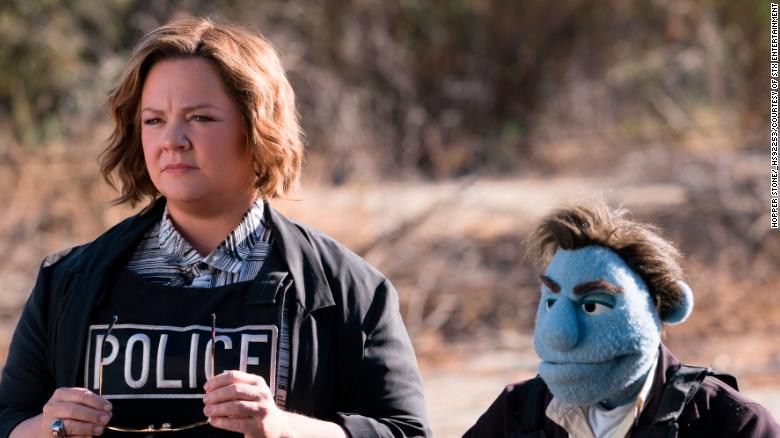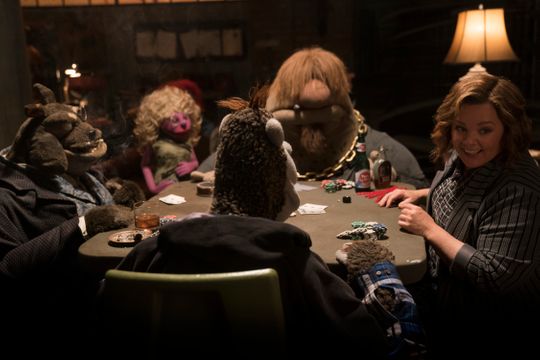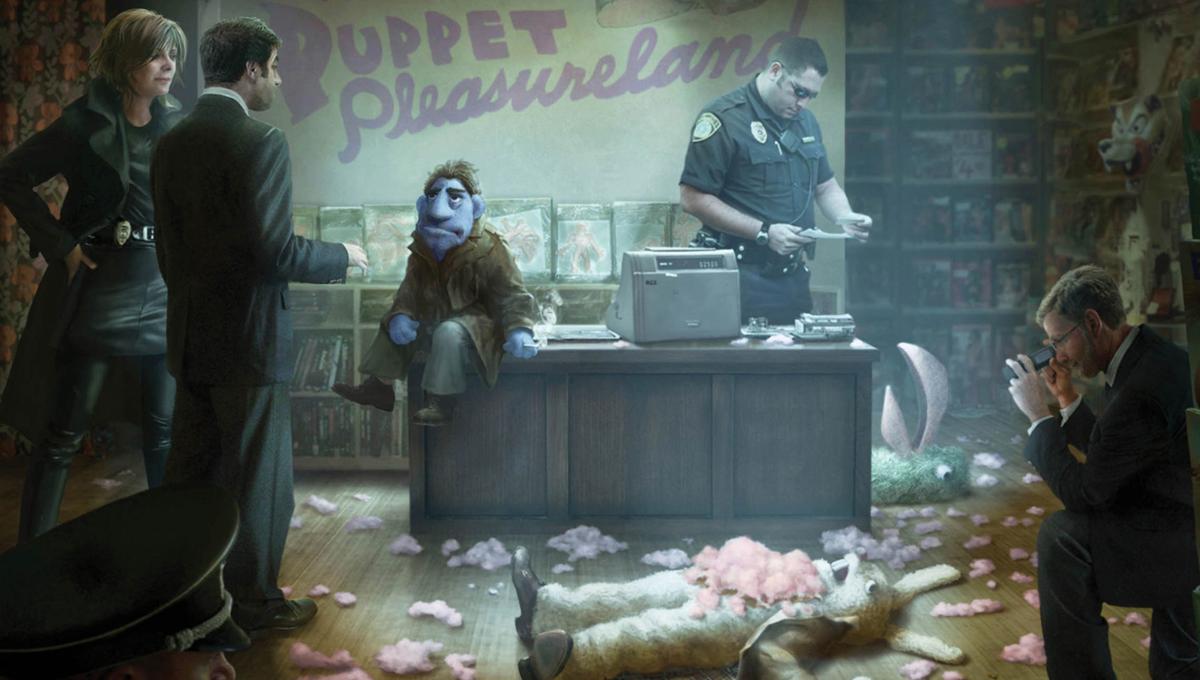
Connie (Melissa McCarthy, L), and Phil (Bill Barretta) survey the scene of potential crime in THE HAPPYTIME MURDERS
The Happytime Murders is the story of Phil (Bill Barretta), a disgraced puppet ex-cop now working as a private investigator, who is drawn back into a world he’d rather forget. Phil’s brother, Larry (Victor Yerrid), used to work on a popular kids’ television show in the 1980s called The Happytime Gang, along with Phil’s ex-girlfriend, Jenny (Elizabeth Banks). Today, all of the former cast members of the The Happytime Gang are getting murdered off, one by one. When The Happytime Gang goes into syndication, the windfall will be equally distributed among the surviving cast-members. Fewer living cast-members means a larger share, and thus a suspected motive emerges.
The puppets living in the human world are generally seen as inferior—Phil broke a barrier as the first (and now last) puppet to serve on the police force. In order to crack the case, Phil has to team up with his former human partner, Connie (Melissa McCarthy). Phil and Connie had a falling out after she accused him of not being capable of doing his job as an officer on the force claiming that he purposely missed shooting an assailant, who happened to be a fellow puppet. The general animosity towards him and his kind, only complicate matter as he tries to stop more crimes from happening.

What works in The Happytime Murders is the blending of genres, and the first half of the movie’s jokes. Writer Todd Berger, on one of his first full-script assignments, essentially wrote a gritty crime/mystery/drama, and then simply switched out 50% of the roles and references to be puppet-related. The result is a rather humorous exercise in combining several tropes from classic films including Chinatown, Basic Instinct, Lethal Weapon, and more. This is especially true in the first act, as The Happytime Murders essentially goes, successfully, for shock value in laying down the rules of this puppet/human hybrid world which often includes not-so-subtle jabs at modern day racism.

While the concept of The Happytime Murders is clever, some audiences may be nonplussed by the execution. Even at a super-brief run-time of 90 minutes, many may find the puppet-centered jokes get stale by the end. Director Brian Henson definitely has a lot of fun coming up with equivalencies for the puppet world, such as drug addiction taking the form of sugar-loving, and characters being accused of de-shading their felt to look more human, but the well only runs so deep. Furthermore, one’s enjoyment of The Happytime Murders is likely directly proportional to people’s love of noir films and buddy comedies, as the homages come fast and often. The Happytime Murders never really commits to a style, and thus some may dismiss the film as aimless, dull, or just unabashedly unfunny. This would be fair judgement, as the film makes some big assumptions about what previous cinema has been consumed and enjoyed by those watching.
In the end, The Happytime Murders is an interesting experiment, but due to its odd execution, only a few will truly understand the underlying humor, which is very funny, but only if you get it. As such, most audiences will likely reject what its selling.
Recommended if You Enjoyed: Team America: World Police, Who Framed Roger Rabbit
Photos Courtesy of STX Entertainment
Final Grade: C-